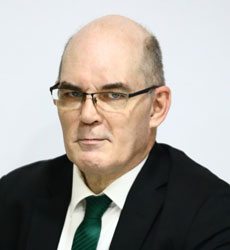In Singapore in January 2019, a group of some of the world’s most well-known petrochemical giants launched with great fanfare and liberal use of hip buzzwords, like “game-changer” and “transformational,” the Alliance to End Plastic Waste (AEPW). Its stated goal was “to divert millions of tons of plastic waste in more than 100 at-risk cities across the globe” within the next five years. With at least $1.5 billion in pledged funding from the industry and the support of other noteworthy partners, such as Usaid, the UN Human Settlements Program and the World Business Council for Sustainable Development, AEPW seemed like an initiative with some potential.
One of the key objectives of the organization, as it was explained during the launch, was to provide financial and technical support for innovative startups that could make a sustainable business of reducing the global burden of plastic waste, which the UN Environment Program estimates to be in excess of 300 million metric tons a year. A flagship project to get the ball rolling, so to speak, was called Renew Oceans, which AEPW was funding to the tune of $5 million.
Continue reading with one of these options:
Ad-free access
P 80 per month
(billed annually at P 960)
- Unlimited ad-free access to website articles
- Limited offer: Subscribe today and get digital edition access for free (accessible with up to 3 devices)


